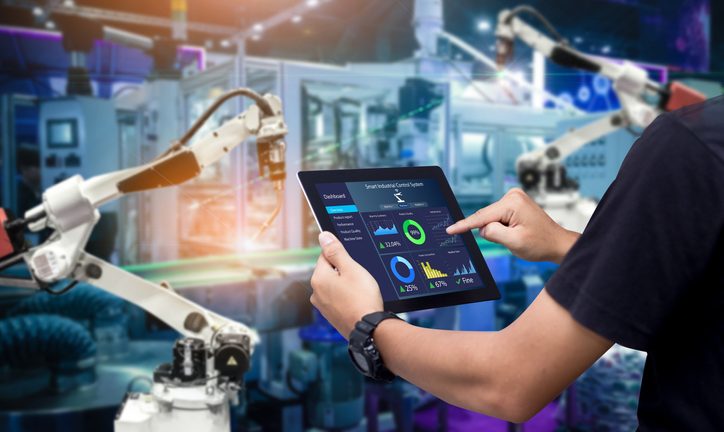

Automation is not a new thing for industries; it is a technology concerned with the application of mechanical, electronic, and computer-based systems to operate and control the manufacturing process. The term automation is used for self-control single, discrete task or processes. In automation, machines made decisions based on a defined set of rules and inputs from sensors. Automation has been a part of almost every industry from the last many years to some basic level and even at a high level.
A smart factory is one step ahead of automated factories. The term “Smart”, in some cases, defined a device, which generally consists of: a sensor, and/or actuator, a microcontroller and a transmitter-receiver set for communication. However, the term smart is also used to distinguish an object that is upgraded by the implementation of additional features, which introduces multiplatform communication and an increase in its computational abilities.
With the advancement in electric and electronic technology, the internet of things, automation technology and development in artificial intelligence makes it possible to transform factory in to smart factory. Smart factory will support machines and equipment that communicate with users and with other automated processes and mechanisms to facilitate real-time data interchange between the factory and the market to support dynamic adaption and maximize efficiency. Smart factory can be defined as “it is a manufacturing solution that provides such flexible and adaptive production processes that will solve problems arising on a production facility with dynamic and rapidly changing boundary conditions in a world of increasing complexity”.
Smart factories may have many benefits such as efficient process, increase in product quality, sustainability, and increase in safety and decrease in product cost.
Major features of smart factory are connectivity, transparency, optimization, agility and proactivity. These features enable factories to improve the production process. The most important feature of smart factory is it’s connected in nature. In smart factory machines, equipment and other assets are fitted with smart sensors so systems can update data as per current conditions. Integration of data from operations, business systems, suppliers and customers enables a perfect view of supply chain processes which will enhance supply network efficiency.
The data collected in the smart factory are transparent, which makes greater visibility across the whole system and ensure that the concern can take more accurate decisions by systems such as real time alerts, notifications, real-time tracking and monitoring. An optimized smart factory makes operations to be implemented with high reliability and minimal manual intervention. This will increase production, quality and reduce costs and wastage. The agile feature allows adopting changes in schedule and product with minimum intervention. Smart factories can also make changes in equipment, material and material flow depending upon changes in schedule and product. In Smart factory, systems can predict and act before challenges arises rather than simply responding.
Key Technologies involved in the smart factory are:
Big Data and Cloud computing